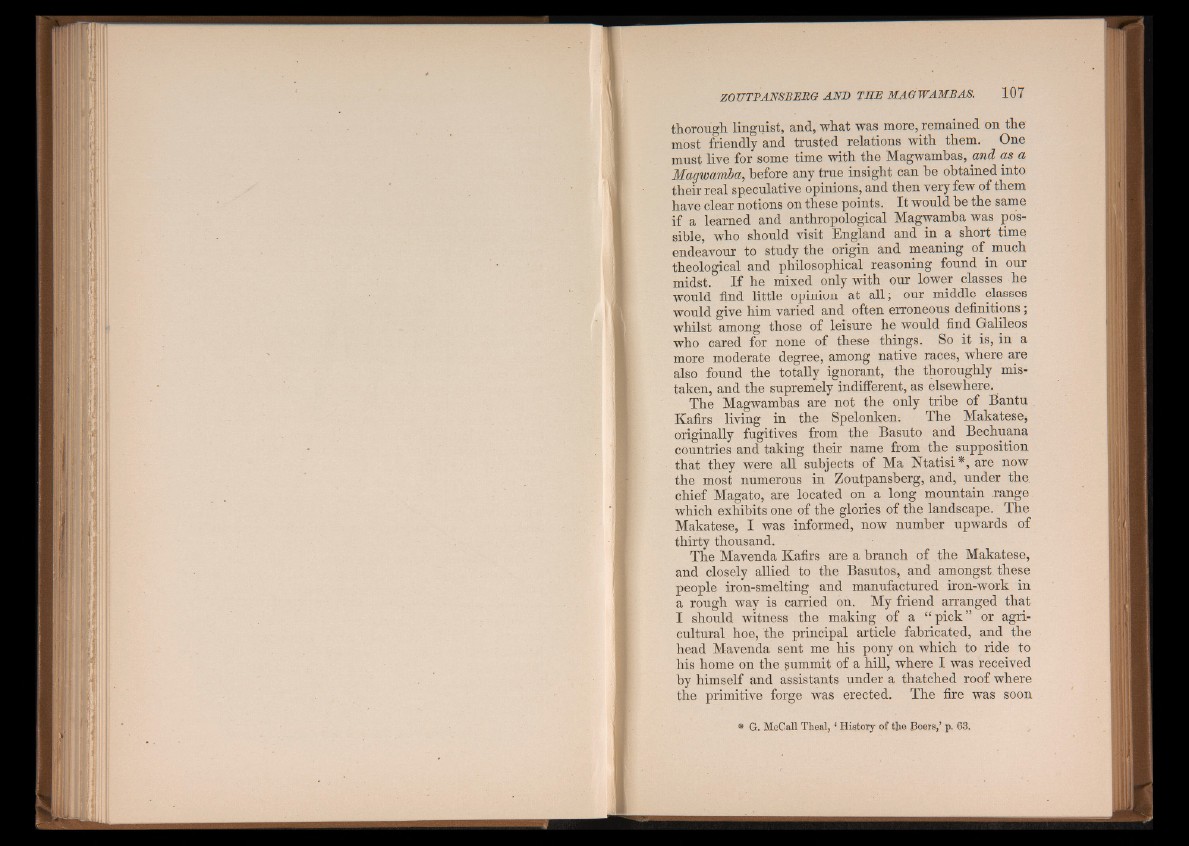
I
:
I
SI
thorough linguist, and, what was more, remained on the
most friendly and trusted relations with them. One
must live for some time with the Magwamhas, and as a
Magwamba, before any true insight can be obtained into
their real speculative opinions, and then very few of them
have clear notions on these points. I t would he the same
if a learned and anthropological Magwamba was possible,
who should visit England and in a short time
endeavour to study the origin and meaning of much
theological and philosophical^ reasoning found in our
midst. If he mixed only with our lower classes he
would find little opinion at all; our middle classes
would give him varied and often erroneous definitions;
whilst among those of leisure he would find Galileos
who cared for none of these things. So it is, in a
more moderate degree, among native races, where are
also found the totally ignorant, the thoroughly mistaken,
and the supremely indifferent, as elsewhere.
The Magwamhas are not the only tribe of Bantu
Kafirs living in the Speloriken. The Makatese,
originally fugitives from the Basuto arid Bechuana
countries and taking their name from the supposition
that they were all subjects of Ma Ntatisi *, are now
the most numerous in Zoutpansberg, and, under the
chief Magato, are located on a long mountain .range
which exhibits one of the glories of the landscape. The
Makatese, I was informed, now number upwards of
thirty thousand.
The Mavenda Kafirs are a branch of the Makatese,
and closely allied to the Basutos, and amongst these
people iron-smelting and manufactured iron-work in
a rough way is carried on. My friend arranged that
I should witness the making of a “ pick” or agricultural
hoe, the principal article fabricated, and the
head Mavenda sent me his pony on which to ride to
his home on the summit of a hill, where I was received
by himself and assistants under a thatched roof where
the primitive forge was erected. The fire was soon
* G. McCall Theal, 1 History of the Boers,’ p. 63.